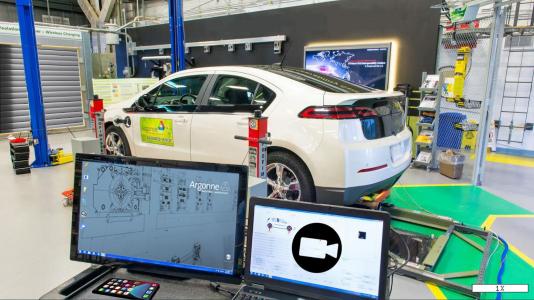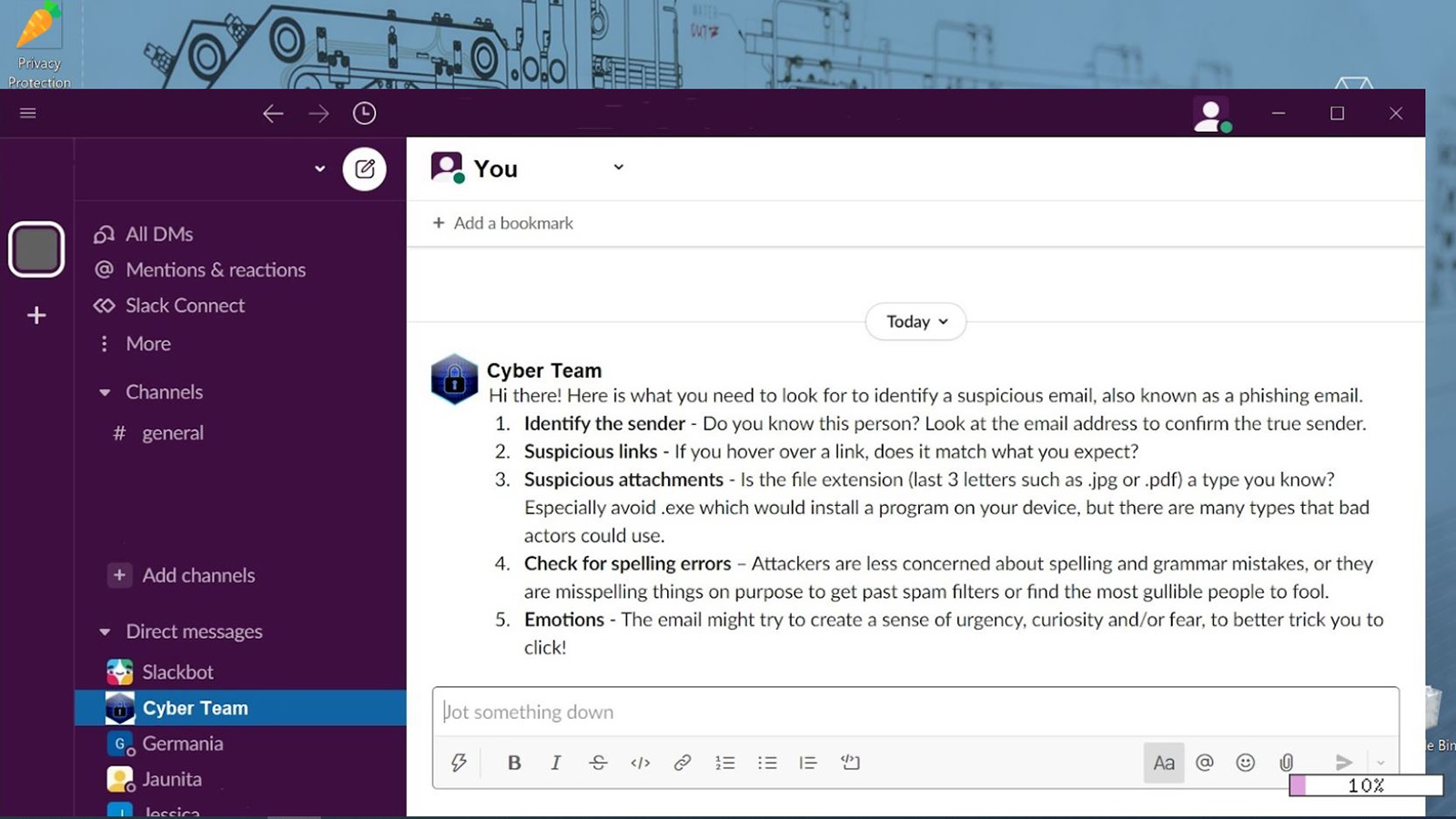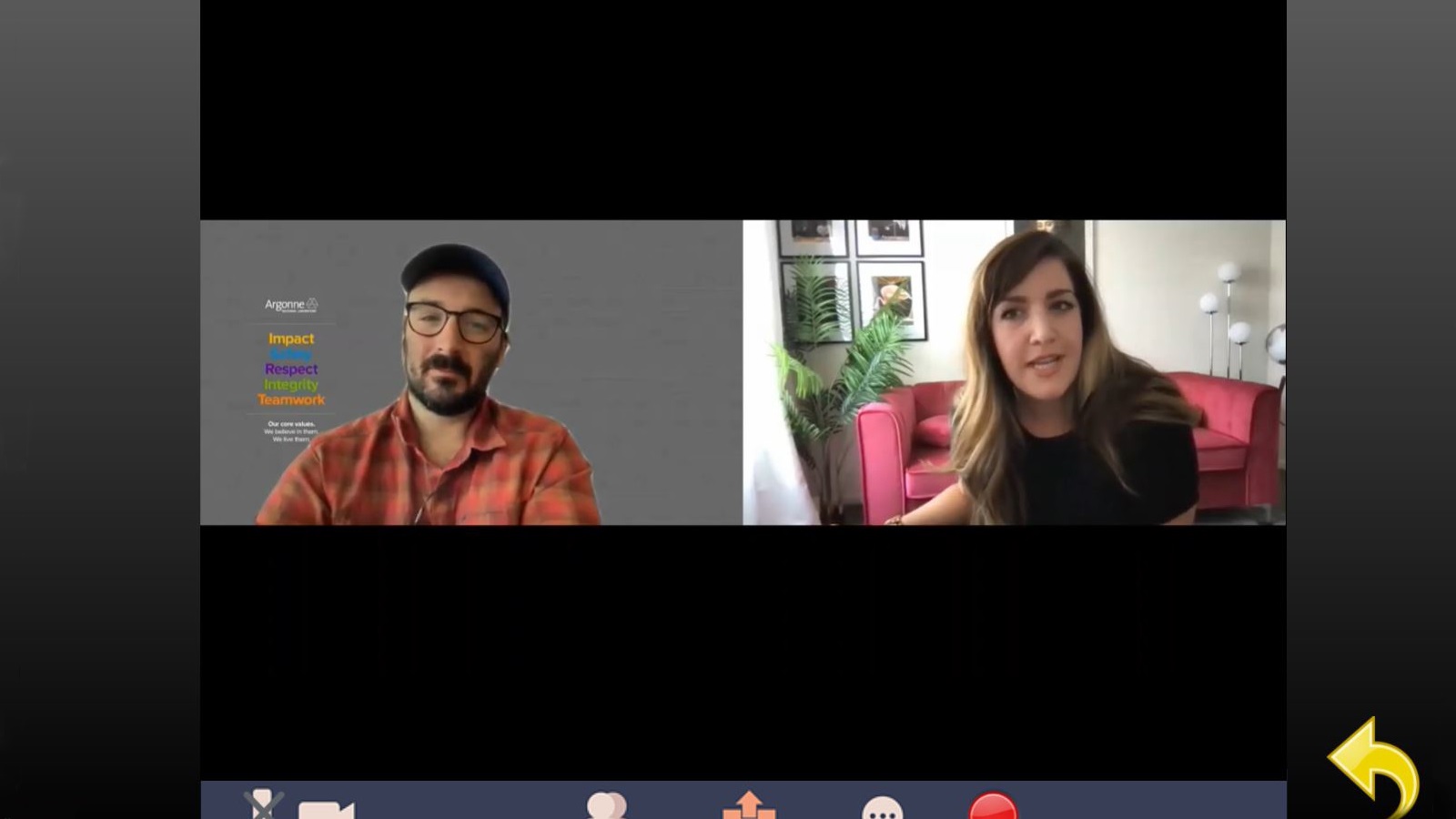
You just got a call from your bosses at work: A mysterious hacker calling himself “Butch Hackidy” is seizing control of cars using phones and is holding them hostage for ransom. Will you be able to stop him in time?
You may be surprised to learn that the exciting story above was not from a movie or video game. Instead, it is the premise of a new cyber escape room developed by the U.S. Department of Energy’s Argonne National Laboratory. This fun, virtual challenge immerses seventh-12th grade students in the work of cybersecurity and helps them learn basic coding and cybersecurity techniques. Created by Argonne’s Educational Programs and Outreach department, the activity features many cybersecurity principles that are engaging to youth.
“We are all proud of this achievement, both in the cross-department collaboration and in its impact on students. The escape room shows that there are many different ways — both virtual and in person — that we can engage youth in STEM education. Through these activities, we help them personally connect with the world-changing science of the lab.” — John Domyancich, Learning Center lead
“We want to create ways in which students can get a sense of the unique and fascinating problems that Argonne scientists and engineers work on every day,” said Learning Center lead John Domyancich. “In the end, we want the experience to make the students feel like they are at Argonne, solving a real problem.”
Cybersecurity is an ongoing issue that students can find relatable. Therefore, Argonne’s Learning Center team collaborated with Jennifer Fowler and Roland Varriale from the lab’s Cyber Operations, Analysis and Research group. Fowler and Varriale helped ground the escape room in real science and create a realistic storyline.
The Argonne Education Teen Advisory Council (ATAC) recently reviewed the escape room and had mostly positive feedback.
“We appreciate the [video’s] explanations of each step in the process and the events that took place,” said Ella Myslo, speaking on behalf of herself and fellow ATAC members Madison Griggs and Anvi Padhi. “For those of us with little knowledge of cybersecurity, it was very helpful to hear and see an explanation of each concept.”
Similarly, students participating in the escape room expressed enthusiasm for the activity.
“My team was an amazing collaborative of great minds!” one student wrote in the virtual chat. Another student said: “This was so fun. I want to do this again!”
Argonne’s Learning Center has been using the escape room approach to connect virtually to classrooms since October 2021. An improved version, building on the ATAC’s feedback, will be part of the spring 2022 programming.
“We are all proud of this achievement, both in the cross-department collaboration and in its impact on students,” Domyancich said. “The escape room shows that there are many different ways — both virtual and in person — that we can engage youth in STEM education. Through these activities, we help them personally connect with the world-changing science of the lab.”
School groups interested in participating in an escape room experience should visit the virtual escape room webpage for more information.
Argonne National Laboratory seeks solutions to pressing national problems in science and technology by conducting leading-edge basic and applied research in virtually every scientific discipline. Argonne is managed by UChicago Argonne, LLC for the U.S. Department of Energy’s Office of Science.
The U.S. Department of Energy’s Office of Science is the single largest supporter of basic research in the physical sciences in the United States and is working to address some of the most pressing challenges of our time. For more information, visit https://energy.gov/science.


